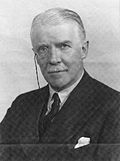This article cites its sources but does not provide page references .(October 2023) |
| Lancaster | |
|---|---|
| Former county constituency for the House of Commons | |
 Lancaster in Lancashire, showing boundaries used from 1974–1983 | |
| County | Lancashire |
| 1885–1997 | |
| Seats | One |
| Created from | North Lancashire |
| Replaced by | Lancaster and Wyre, Morecambe and Lunesdale, Fylde |
| 1523–1867 | |
| Seats | Two |
| Type of constituency | Borough constituency |
| Created from | Lancashire |
| Replaced by | North Lancashire |
| 1295–1376 | |
| Type of constituency | Borough constituency |
Lancaster was a constituency of the House of Commons of the Parliament of England then of the Parliament of Great Britain from 1707 to 1800 and of the Parliament of the United Kingdom from 1801 to 1867, centred on the historic city of Lancaster in north-west England. It was represented by two Members of Parliament until the constituency was disenfranchised for corruption in 1867.
Contents
- History
- Boundaries
- Members of Parliament
- Lancaster borough
- 1295–1640
- Lancaster county constituency
- Elections
- Elections in the 1830s
- Elections in the 1840s
- Elections in the 1850s
- Elections in the 1860s
- Elections in the 1880s
- Elections in the 1890s
- Elections in the 1900s
- Elections in the 1910s
- Elections in the 1920s
- Elections in the 1930s
- Elections in the 1940s
- Elections in the 1950s
- Elections in the 1960s
- Elections in the 1970s
- Elections in the 1980s
- Elections in the 1990s
- Notes and references
- Sources
Under the Redistribution of Seats Act 1885, Lancaster was re-established for the 1885 general election as a county constituency. It then returned one Member of Parliament (MP) to the House of Commons of the Parliament of the United Kingdom, with elections held under the first-past-the-post system. This constituency in turn was abolished when it was largely replaced by the new Lancaster and Wyre constituency for the 1997 general election.





